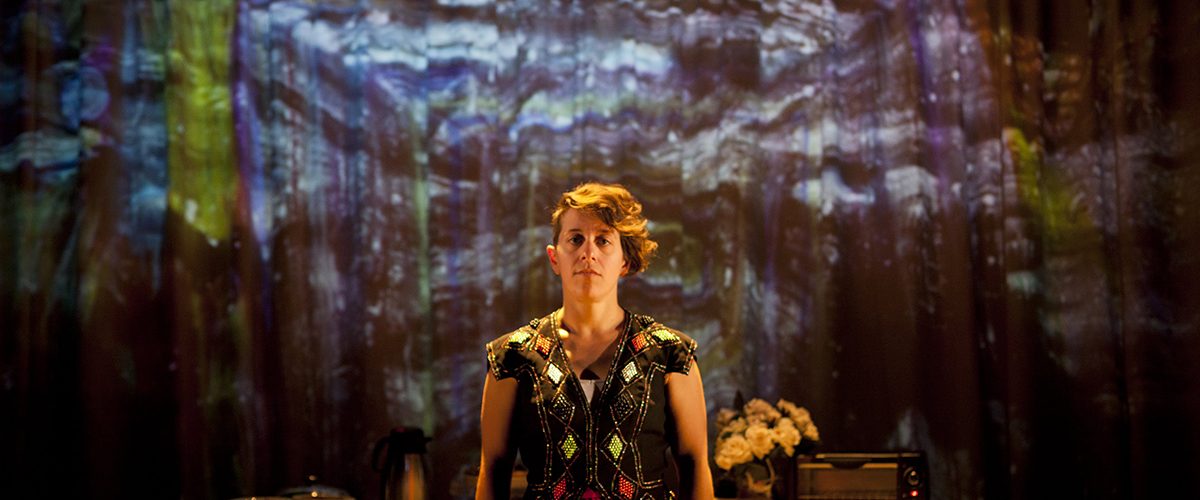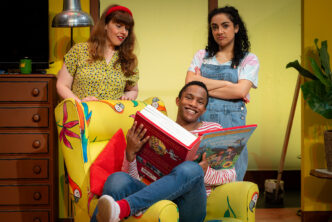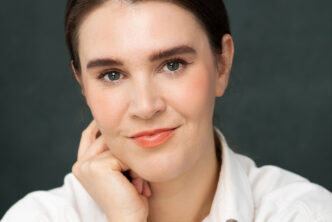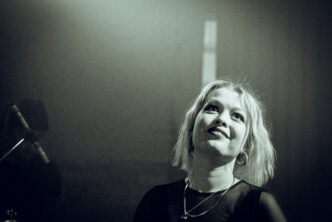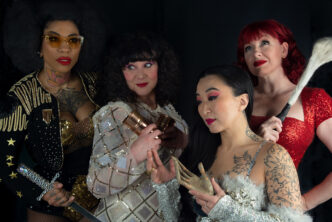As part of the Holocaust Memorial Day commemorations at Manchester Jewish Museum, London-based, Canadian theatre maker and performer, Tamara Micner reflects on how the next generation can keep memories alive. She talks to Quays Life about the remarkable true story that inspired her one-woman show, Holocaust Brunch.
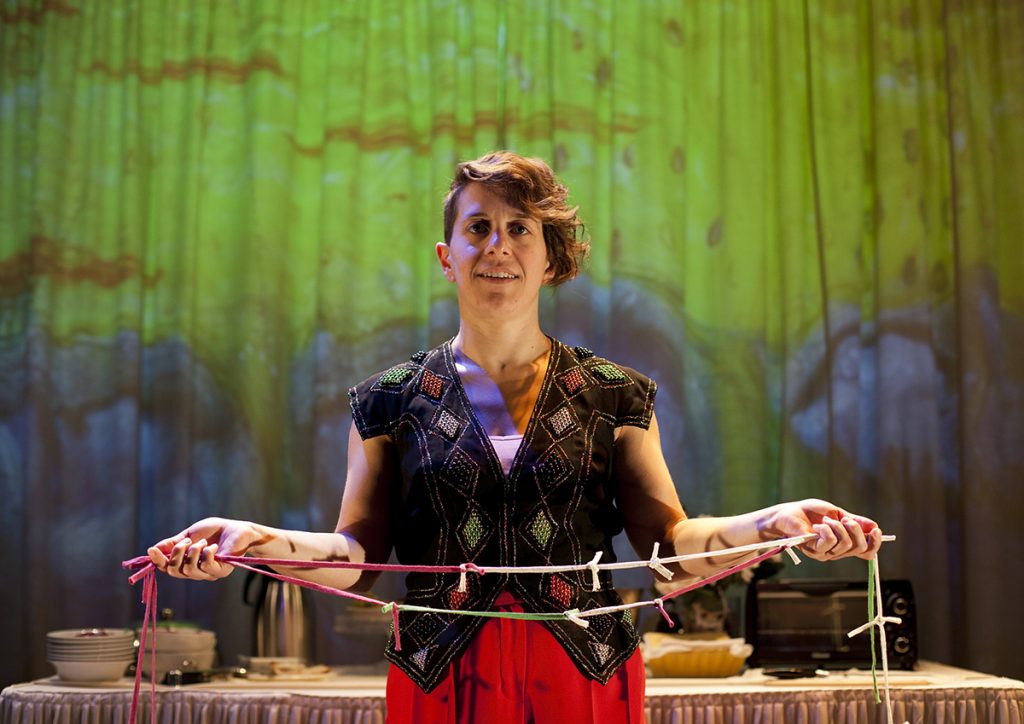
Who were Bluma and Isaac Tischler?
Tamara: “They were the grandparents of my lifelong friend Yael, and friends of my family as well”.
Why did you choose their stories to include in the show?
Tamara: “Their older son, Aron, offered their stories to me to tell in a piece of theatre. That was the starting point for this show.”
What is Holocaust Brunch about?
Tamara: “Holocaust Brunch tells the remarkable true story of my friend’s grandparents, who survived the War in a Soviet Union medical school before becoming world-renowned doctors in Canada after the war. And it looks at what it’s like growing up as a descendant of survivors, and how that experience still affects us today. The show explores how we can honour the histories we inherit, whilst breaking free from them. And I serve the audience beigel brunch”.
How much of your own experience is in the performance?
Tamara: “ The show is a mix of my own experience and the experiences of people I know, including family, friends and others who been affected by the Holocaust/Second World War in some way”.
Can you tell us about your visit to Poland?
Tamara: “I went to Poland in the summer of 2016 (the day after the Brexit vote, actually!) with my sister, and it was our first time going there. The visit was difficult, fun, incredibly sad, a whole combination of experiences. We visited the hometowns of our father’s parents, outside the city of Lublin in southeast Poland, and we also visited Krakow, Warsaw and two concentration/death camps. I would visit Poland again, but this time I’d be better prepared for it being quite an emotional experience”.
The play is described as darkly funny – how do you find humour in this subject matter?
Tamara: “There is a rich tradition of Ashkenazi (Eastern European) Jewish comedy using humour to look at hard things, and this show is very much working in and with that tradition. I think humour can help us go to difficult places and can give us some catharsis. That’s my hope”.
“I think humour can help us go to difficult places and can give us some catharsis. That’s my hope.”
What is your game, “Top 10 things non-Jews say to you about the Holocaust”?
Tamara: “It’s one of those games that kind of isn’t a game … At various points in the show, the audience and I go through weird or problematic things that people have said to me, or to people I know, about the Holocaust or about Jews, and I respond to them. Part of the idea is to look at how the War continues to affect us today, and to use humour to look at something uncomfortable – the stereotypes and assumptions that some people have about Jews or about the Holocaust. It’s about bringing things to light, rather than blaming people or pointing fingers, and kind of going: ‘Hang on a minute, that’s a bit weird, isn’t it? What’s that about?’
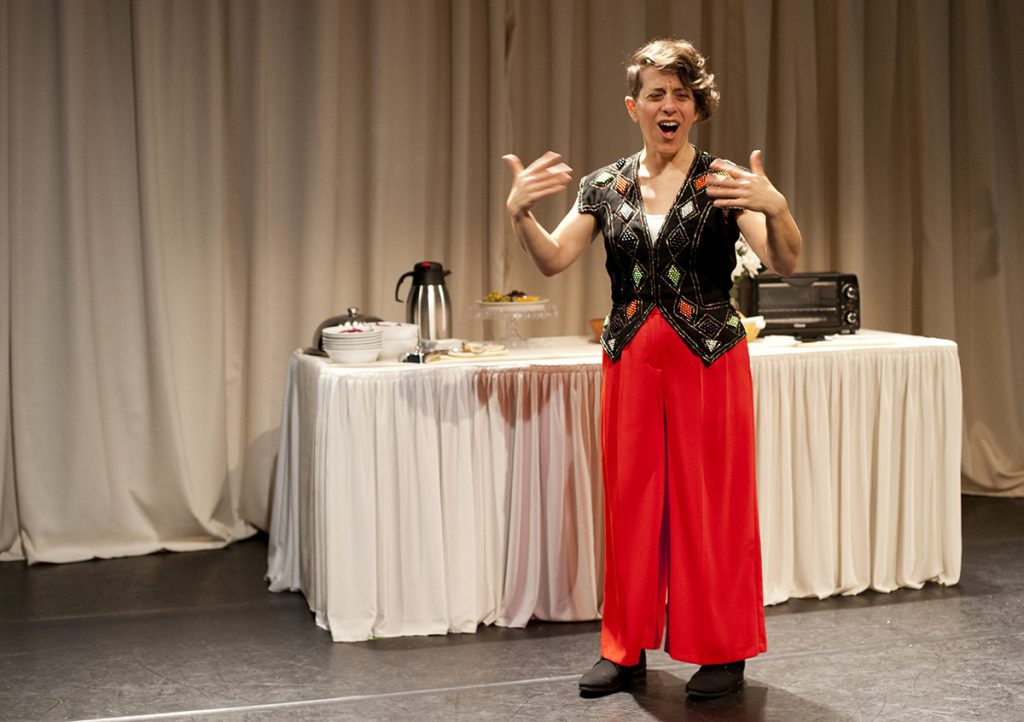
Why do you think people sometimes say the wrong things?
Tamara: “I wouldn’t say that people sometimes say the ‘wrong’ things. I think we can get confused, or get misinformation, about history and about people today. For example, one stereotype that emerged about Jews and the Holocaust after the War was that Jews didn’t fight that persecution. And that’s not true. Jews did fight (and we’re still fighting oppression!), and were not passive victims. I think sometimes people don’t realise that they might be saying something hurtful or untrue”.
What do you hope people will take from the play?
“I hope people will have a better understanding of how the War still affects us today, whether we’re Jewish or not Jewish. And I hope they’ll take a beigel!”
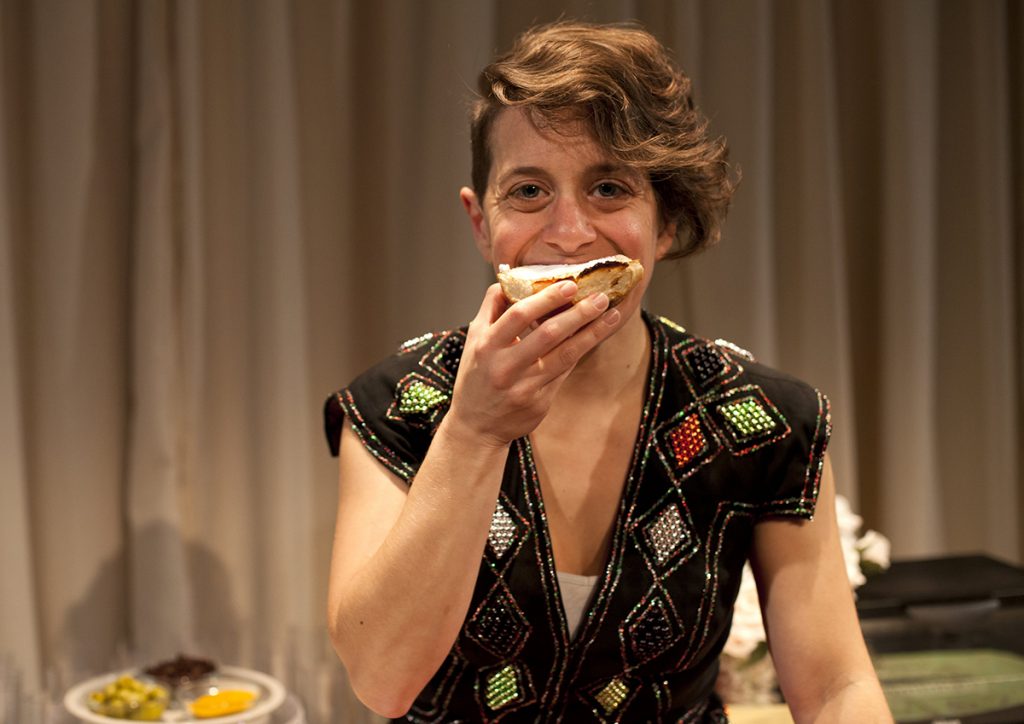
Holocaust Brunch is at the Manchester Jewish Museum as part of its Holocaust Memorial Day event on 27 January 2020 at Central Library Manchester. See website for details.

